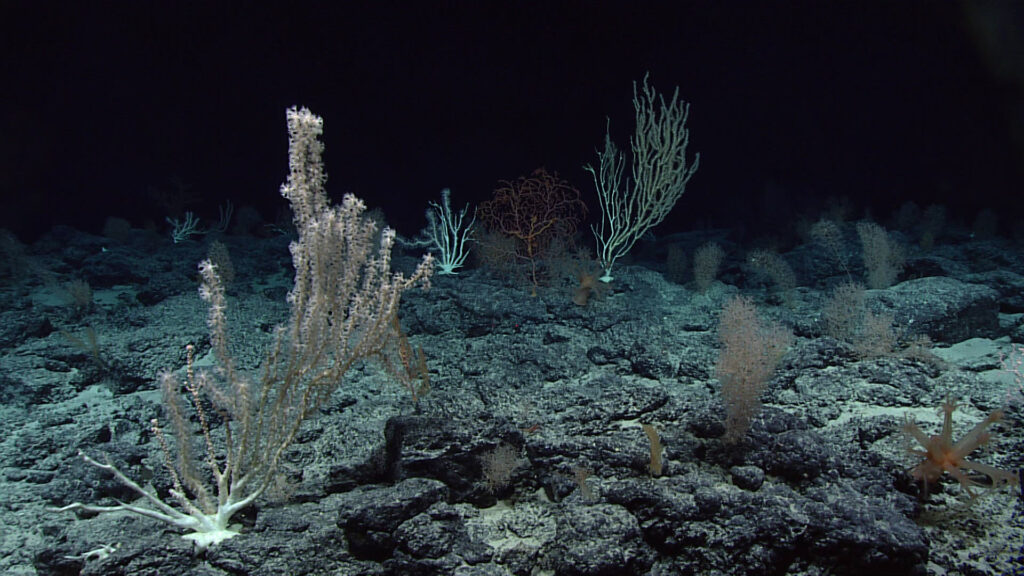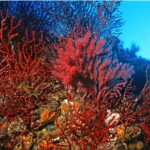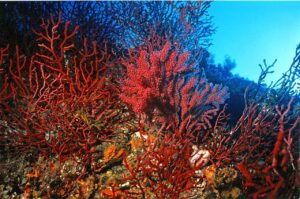The International Seabed Authority (ISA) was founded in 1994 as an autonomous organisation established through the implementation of Part XI of the United Nations Convention on the Law of the Sea (UNCLOS). It became operational in 1996 to safeguard what we know as the “deep sea” — an area considered the “common heritage of all mankind“ — by protecting the ecosystems of the seabed, ocean floor and subsoil in areas beyond national jurisdiction. The ISA’s focus includes controlling the development of deep sea mining, which was debated last month through two of the five arms of the ISA, the Council and the Assembly.

On July 21, the ISA Council concluded two weeks of intense negotiations. Discussions were focused on a deep sea mining code, which was not agreed nor adopted. The mining industry interested in the sea floor were hopeful of starting their operations this year. This was led by one of the attendees, The Metals Company, who was sponsored by the Government of Nauru in creating the Nauru Ocean Resources, Inc. (NORI). NORI has engaged in comprehensive research of seabed rocks, or polymetallic nodules, which they say are packed with cobalt, copper and nickel, and could power 280 million electric vehicles. It was Nauru, on behalf of The Metals Company, who triggered the current push for deep sea mining in 2021.
The CEO and Chairman of The Metals Company, Gerard Barron was previously the Founder and CEO of Adstream, an international advertising management and distribution company, which provided services to assist with the production, management and distribution of advertisements for all forms of media. On his LinkedIn profile he states he is on “a mission to help transition our planet away from fossil fuels and toward a circular-resource economy.” If you continue scrolling down his profile, Barron articulates his skills, most of which connect to his time in advertising and marketing, skills he now applies to his interest in deep sea mining, framing it as a process that will support a healthy planet.
The Metals Company is not the only organisation focused on deep sea mining that Barron has been associated with. The first, Nautilus Minerals, was steeped in controversy that stemmed from an environmental and social benchmarking report, which was based on information provided by Nautilius Minerals, rather than through an objective body. A coalition of environmental organisations questioned the legitimacy of the report, stating it was “clearly an attempt to downplay the risks posed by the Solwara 1 project”, which was the proposed site for Nautilius Minerals’ first mining operation, in the Bismarck Sea, near the coast of Papua New Guinea.
The second organisation, DeepGreen Metals, was scrutinised for its “green” positioning. It was the first time that Barron had framed his projects with an environmental focus through the belief that mining the seabed would lead to less environmental destruction than mining on land. When this belief was questioned, DeepGreen released a statement saying it doesn’t view mining on land or underwater as sustainable, and that “the only path to sustainable metals is to build up enough metal stock to shift away from mined to recycled metals.”
DeepGreen Metals then combined their operations with those of the Sustainable Opportunities Acquisition Corporation, “a special purpose acquisition company with a dedicated ESG focus”, to form The Metals Company, the third iteration of Barron’s deep sea journey. With The Metals Company, Barron continues to flex his marketing muscles with their website stating that “polymetallic nodules are the cleanest path toward electric vehicles.” It also states The Metals Company’s belief that “polymetallic nodules may provide an opportunity to compress lifecycle environmental and social impacts of producing critical metals as compared to many land-based projects, and may potentially offer the lightest planetary touch”, echoing the previous refuted claims of DeepGreen Metals.

The Metals Company’s beliefs centre on rocks found on the ocean floor, within their primary exploration area the Clarion Clipperton Zone, which is located in the Pacific Ocean between Hawaii and Mexico. The company asserts that these nodules “do not contain toxic levels of heavy elements”. These views go against independent reports that highlight the lack of knowledge of the risks, which is echoed by Sir David Attenborough, who criticises the disregard for the impacts of deep sea mining.
769 marine science and policy experts from over 44 countries issued a joint statement calling for a pause to deep sea mining, yet Gerard Barron said they were misguided, once again comparing mining of the ocean floor to terrestrial mining practices. These critics say that harvesting these nodules will affect whale and tuna migration, interrupt important ecological processes, extinguish newly discovered species and potentially accelerate climate change by impacting undisturbed carbon stores.

According to the New York Times, The Metals Company’s progress has been supported by a close relationship with the ISA, which led to the company’s presence in negotiations at the recent meetings of both the ISA Council and Assembly. The ISA Council agreed on 2025 as an indicative timeline to develop a mining code, but it failed to close the legal loophole that will allow the industry to begin, so the threat of deep sea mining remains. Although resistance is strong, with a growing number of governments pushing against industry pressure, calling for a precautionary pause, moratorium or ban within international waters. Supporting their resistance was the UN Commissioner on Human Rights, members of the seafood industry and a group of 36 financial institutions.
The focus then turned to the ISA Assembly. Negotiations took place from July 24th and 28th, and no approval was offered to begin deep sea mining, despite pressure from the industry, including The Metals Company, who have since stated they intend to submit an application to the ISA for an exploitation contract for NORI Area D following the July 2024 meeting of the ISA, and they expect to be in production in the fourth quarter of 2025.
This discussion inspires the question of what a true climate solution looks like? The Metals Company will tell you it is through the electrification of the world facilitated by their work with polymetallic nodules. We prefer to listen to the independent experts and their research that suggests otherwise.
Anton Rivette is a writer and photographer. He leads storytelling at eco-nnect.
You might also like: Making a Marine Biosphere













